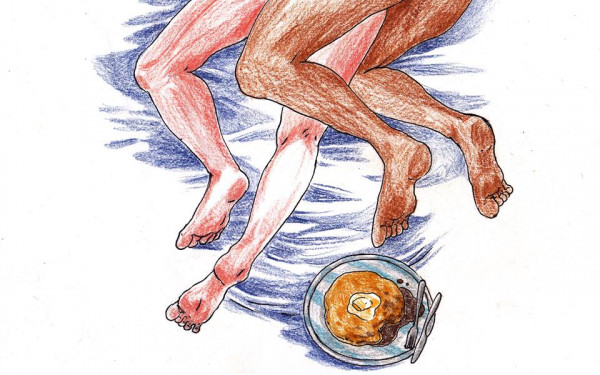Oral Conundrum
Melissa, I recently read that gonorrhea is on the rise and is mainly transmitted through oral sex. The idea to use a condom during oral sex genuinely makes me want throw up, but I don’t want to get a STI either. What should I do?
—Orally Concerned
You’re absolutely right that gonorrhea is currently on the rise in Canada.
On a very related note, people often think about certain STIs like gonorrhea as the not-so scary ones because they’re treatable, but it was recently brought to public attention that drug-resistant gonorrhea strains have been coming up in Canada.
There may be a time in the near future when gonorrhea will no longer be an STI that’s easy to treat—or possibly treatable at all.
Gonorrhea can be transmitted vaginally, anally, and orally. I wouldn’t say the main method of transmission is oral, but it would be pretty difficult to know for sure, since there’s barely any data on gonorrhea prevalence in Canada period, let alone how exactly people contract it.
I do, however, think that more and more people are engaging in unprotected oral rather than unprotected vaginal or anal sex, since condoms have become pretty standard there, so it would make sense for oral transmissions to be on the rise.
There are a lot of cases of gonorrhea and chlamydia that go unreported because it’s typical to show no symptoms when you’re infected. This is one of the reasons health professionals push for routine STI tests rather than only going if you think you might have something.
The more common symptoms are greenish-yellow discharge or pain during urination. If you’re orally infected, it’s a sore throat, and swollen glands.
Since gonorrhea and chlamydia can also infect your mouth, it’s important to know that a standard STI test doesn’t always include a swab sample of your mouth to check for them, so be sure to ask if your doctor doesn’t do it.
While sucking on latex doesn’t sound appealing, oral gonorrhea, chlamydia and herpes probably don’t either. Condoms and dental dams are basic and widely available tools that significantly lower your risk of contracting anything, so you might as well use them if you really want to have oral sex but you’re worried.
It really comes down to what level of risk you’re comfortable with. I prefer to be realistic about the fact that some people still won’t use protection, and that’s their personal choice to make.
If you do choose to have unprotected oral sex, you need to be prepared to take responsibility and accept the consequences if you contract or pass on an STI. Remember, if you haven’t recently been tested, you might actually be the one passing an STI without knowing you had one.
I wish there was a better, more desirable answer, but unfortunately, STIs are a reality that we’re all living with. Your other option is to not have casual oral sex, and only do things you’re comfortable using protection during.
Maybe save the unprotected stuff for a trusting sexual relationship where you can both get tested and have a better idea of each other’s STI statuses. Until then, it’s really your call to make—and you now have all the info to make it.
Submit your questions anonymously at sex-pancakes.tumblr.com and check out “Sex & Pancakes” on Facebook. Need some extra help? You can always contact Concordia Counselling & Development at 514-848-2424 ext. 3545 for SGW and ext. 3555 for Loyola. Got a quick health question? Call info-santé at 8-1-1 from any Montreal number.





